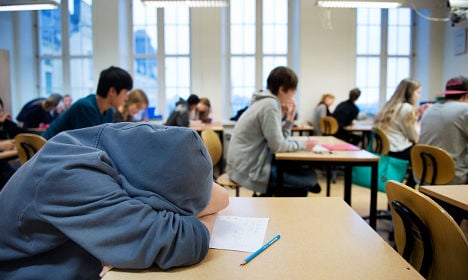An aspect often overlooked when analyzing Sweden’s precipitous fall in the annual Pisa rankings is the active role taken by researchers two decades ago in demonizing traditional teaching methods, Linderoth writes in newspaper Dagens Nyheter.
“The age-old form of instruction, in which someone who knows something explains it to someone who doesn’t, came to be associated with abuse of power and blind discipline,” says the Gothenburg University professor.
“Instead, a good teacher was supposed to support a pupil’s independent learning, classwork was to take the pupil’s natural motivation as its starting point, the boundaries between different subjects were to be dissolved, and the physical environment in a school was to be designed more to support a pupil’s own work than a teacher’s instruction.”
As a result, he writes, the teacher’s traditional role was gradually dismantled, all under the watchful eyes of researchers, teacher trainers, civil servants, trade unions, and politicians.
But recent research has suggested that the ideas greeted with such enthusiasm back then “stand in almost direct contradiction to what constitutes successful teaching methods”.
Linderoth now believes that the innovators from the 1990s who ushered in such sweeping changes – including himself – should publicly apologize for the damage they have done.
An apology could help heal the deep fractures that emerged between more old-school teachers and a teacher-training regime that turned their world upside down.
“It could rehabilitate teachers who managed to resist teaching trends that accentuate a teacher’s role as guide. It would allow teachers to once again view their own professional identity with pride in a historical perspective,” he writes.
As a new school year starts the country is now grappling with the dual problem of qualified teachers leaving their jobs and empty spaces appearing in teacher-training colleges.
“The situation is very worrying. Within a few years Swedish schools will lack thousands of qualified teachers,” says Linderoth.



 Please whitelist us to continue reading.
Please whitelist us to continue reading.